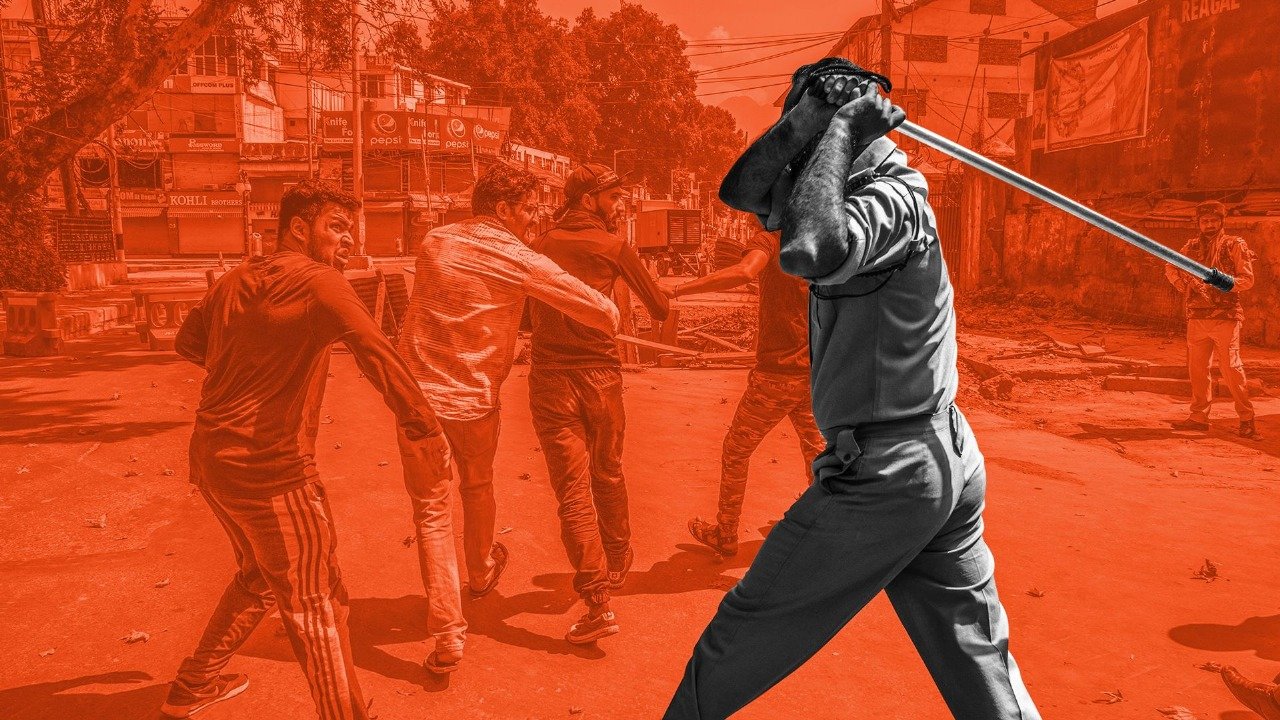It was past 1:30 a.m. on a Thursday in Bhopal’s Piplani area when a group of friends returning from a party encountered two policemen on patrol. What followed, according to CCTV footage, was a chase, a beating, and a tragedy that has once again shaken public faith in policing in Madhya Pradesh.
The victim, Udit Gayaki, a 22-year-old B.Tech student, was found unconscious by his friends — his shirt torn, his body covered in bruises, and blood marks visible across his torso. He was rushed to AIIMS Bhopal, where doctors declared him dead on arrival.
Witnesses said Udit ran into a narrow lane when police constables Santosh Bamaniya and Saurabh Arya followed, suspecting “unruly behavior.” CCTV video later surfaced showing one officer holding Udit while the other struck him repeatedly with a stick. Both constables were suspended the following day, and the police registered a murder case against them.
FCRF Launches CCLP Program to Train India’s Next Generation of Cyber Law Practitioners
Postmortem Findings: “Trauma-Induced Shock” and a Ruptured Pancreas
The postmortem conducted by a five-member medical board at Bhopal’s TIT College revealed over a dozen injuries across Udit’s shoulders, waist, abdomen, forehead, and ears. The cause of death was listed as “trauma-induced shock” resulting from damage to the pancreas, likely caused by a blow to the lower back.
The autopsy also documented deep bruises and internal bleeding, confirming multiple rounds of assault. The entire procedure was video recorded, a rare but critical measure in deaths involving alleged police violence.
Deputy Commissioner of Police Vivek Singh, speaking to The Indian Express, confirmed the findings:
“The deceased had at least 12 injuries. His pancreas was damaged, but this can’t be because of a single blow from a stick. We need a detailed investigation to ascertain how this happened.”
Officials acknowledged that while the constables admitted to assaulting the student, they claimed “no intent to kill.” Both officers remain under suspension and are yet to be arrested, with police citing procedural requirements to “seek custody before arrest.”
Police Under Scrutiny as Public Anger Grows
The incident has drawn sharp criticism from civil rights activists and student groups, who allege that the case reflects a larger pattern of custodial excess and delayed accountability. In recent years, Madhya Pradesh has reported several cases of alleged police brutality, many of which end with internal inquiries but few prosecutions.
A senior police official admitted privately that “public outrage and media attention” compelled the registration of the murder case. However, no senior officer has been held responsible so far, and questions persist about whether the department’s internal oversight mechanisms failed to prevent the abuse.
“Both constables are yet to be arrested,” said DCP Singh. “We will first seek their custody and question them. An arrest will follow soon.”
As investigations proceed, the footage showing the beating continues to circulate online — a haunting reminder of how technology has become both a witness and a test of institutional integrity.
A Family’s Fight for Justice
For Udit’s family, the loss is incomprehensible. His father, Rajkumar Gayaki, an engineer, broke down while speaking to reporters.
“I don’t know why my son died. The policemen should be arrested and handed a harsh sentence.”
His mother, a school teacher, and his brother-in-law, a DSP with the Hawk Force in Balaghat, have joined calls for strict action. The family insists that nothing short of exemplary punishment would restore their faith in justice.
Police officials maintain that the case will be “investigated thoroughly,” but the family’s demand for an independent judicial probe has gained traction, particularly after the autopsy findings pointed to extensive physical abuse.
Udit’s friends, still reeling from the incident, remember him as a quiet student with dreams of working in renewable energy. “He was not drunk, not violent — just scared when the police started chasing him,” one friend said. “He didn’t deserve to die this way.”
A Broader Reckoning on Police Accountability
The case has reopened debate over police training, excessive force, and custodial safeguards. Activists point to the Supreme Court’s directives in Prakash Singh v. Union of India (2006) — which mandated reforms in police accountability — as being routinely ignored.
Bhopal’s tragedy, they argue, is not an isolated incident but part of a systemic culture of impunity, where lower-rank officers face token punishment while structural reforms stall.
As the investigation continues, the story of a young engineer’s violent death has come to symbolize India’s ongoing struggle between law enforcement and the rule of law — a painful reminder that for justice to prevail, the system itself must be held to account.



